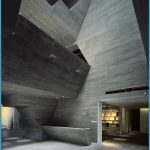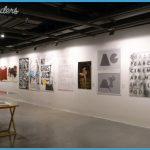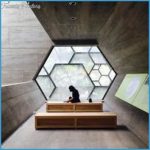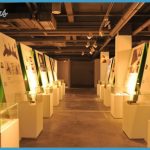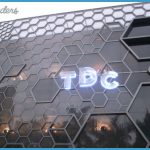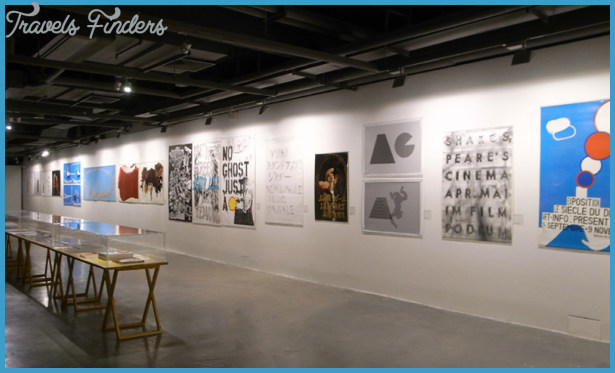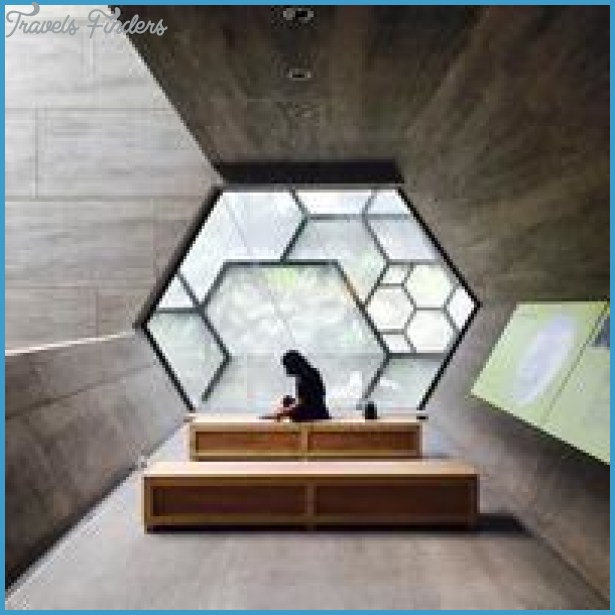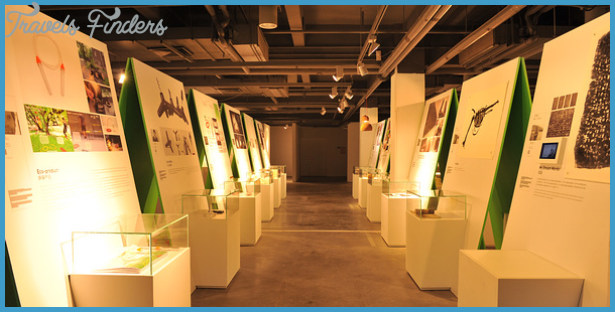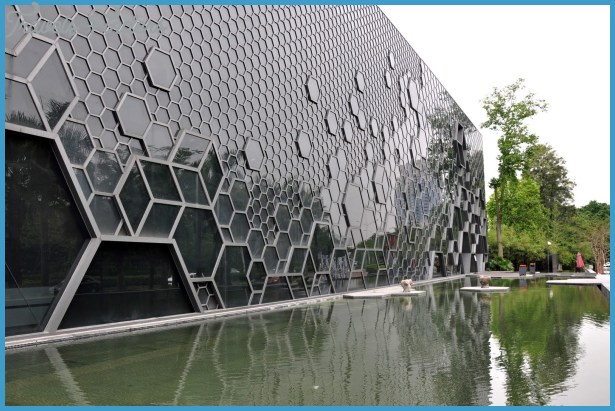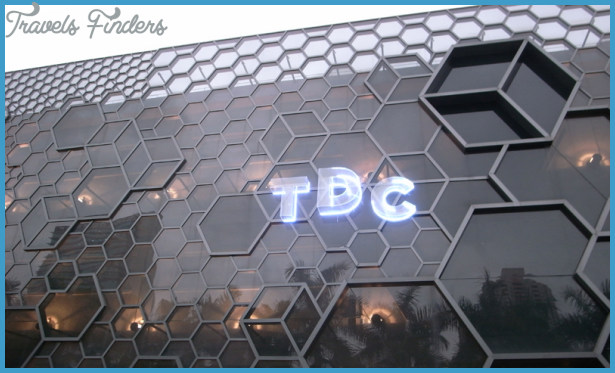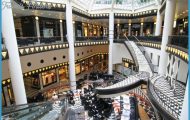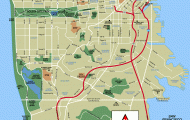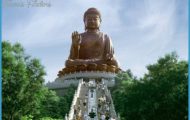This gallery was opened on September 1, 2008. It’s part of the He Xiangning Gallery stable of contemporary art galleries and it specialises in the avant-garde, specifically what its owners classify as Post Modernism. It’s housed in a handsome black three-storey box like building next to the He Xiangning Gallery. It reminds us a bit in terms of its proportions of the Beijing water cube except that instead of bubbles its facade has a trelliswork of black steel. And like its sister, the Shenzhen Contemporary Art Gallery, the facade is built over an industrial building, in this case a former warehouse.
It’s mainstream respectable too. At its opening there was no preponderance of political hacks or third liner local painters. They were all there, all the leading figures of modern Chinese art. And their paintings are displayed in the gallery; Ye Minjun of the famous vacuous toothy smiling faces, Qiang Jin who paints super-realist Christian religious themes, Zhang Weis’ compositions in black and gold, the lot.
If you love art at all you should not miss this. It’s the best. Its promoters describe its post modernism as being manifested in the relationship between the works displayed and the classical and even revolutionary works that inspired them. One of the specialties of the gallery is to show a picture alongside the display of the work, which inspired it. Often these are classical European works. Sometimes they are Chinese works. Other times they are easily recognised works of revolutionary propaganda; figures such as Lei Feng and even Mao Zedong himself.
Several of them have a profound effect on us. We love the works of Yao Lu. When you first look at his canvasses they look just like standard Chinese landscapes, mountains rising abruptly from the sea, cloud shrouded mountain peaks, pavilions. Then you look more closely. What you thought was the pagoda on the mountaintop is actually an industrial chimney belching smoke. The mountains are made of rubbish. The wafting clouds are industrial smoke. And yet the composition and colours, viewed from a distance, are pure peaceful Song Dynasty landscapes.
Have a look at the bold oil paintings of Ma Baozhong. Fundamentally they are monochrome referencing black and white photos but each of them has a splash of violent colour. We like Reinterpretation in 2020 of the Event of 1945. This references the famous photo on VE Day in Times Square of a soldier in uniform kissing a woman. Everything’s the same except that another woman, naked with purple skin and a green bike helmet, replaces the soldier.
One painting which we go back to again and again is Hong Lei’s I Dreamed that I Was Hung Upside Down to Listen to Huizong Playing Zither with Chairman Mao. This references a famous Song Dynasty painting Listening to the Zither by Emperor Huizong himself. It shows a bleak scene, the artist in a bleak landscape hanging by his ankles from a dead tree. Under the tree sits the Song Dynasty Emperor Hui Zong is sitting in imperial yellow robes playing the zither while Mao Zedong sits watching in a characteristic pose. In the deep background is a nuclear explosion.
These historical references may seem obscure but they are as simple to Chinese as King Alfred’s burnt cakes. Huizong 1082-1135 was the last emperor of the Song Dynasty proper. He was dedicated to art and good living. His art was famous and his Slender Gold style of calligraphy is still imitated. But he neglected government and while he played the zither the country slowly fell into danger until it was conquered and the Jurchen dethroned Huizong. The parallels between him sitting unconcerned in his palace while the country burned, and Mao Zedong being so removed from the people that he was unaware of the extent of mass starvation in the late fifties are clear to most Chinese. And notice the absence of the heavy hand of the political censor. This is repeated many times throughout the gallery.
If you have any interest in modern Chinese art don’t miss this gallery Address: Shennan Ave OCT
Open 10 am to 6 pm
Bus nos. 21, 26, 54, 59, 101, 105, 109, 113, 204, 223, 338, 373, 390 Metro Hua Qiao Cheng.


